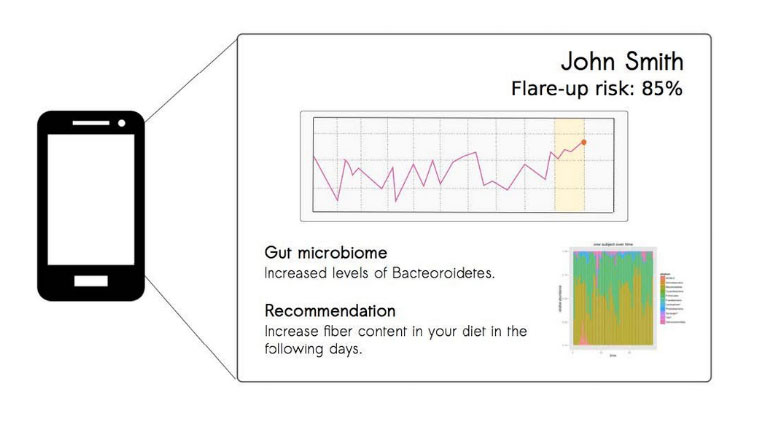Flagship Project
Inflammatory Bowel Disease Tracker CMIT Flagship Project
Environment and behavior are thought to play key roles in the emergence and severity of Inflammatory Bowel Disease (IBD), but these effects are not as straightforward to measure as genetic risk factors. We hypothesize that both Ulcerative Colitis (UC) and Crohn’s Disease (CD) can be better diagnosed and managed by integrating multiple high-resolution, non- or minimally- invasive sources of data (such as behavioral data collected from wearable devices, and biochemical and microbiological assays utilizing frequent, at-home stool samples) to predict disease flare-ups before they occur. Predicting flares will enable clinicians and patients to intervene via medical, dietary, and/or behavioral modifications, potentially diminishing the likelihood or severity of a flare-up, as well as the significant psychological and psychosocial burden associated with the disease’s unpredictability. In addition, identifying key biomarkers of flares may provide researchers with novel targets for therapeutics.
The Center for Microbiome Informatics and Therapeutics is collaborating with Dr. Ashwin Ananthakrishnan at Massachusetts General Hospital (MGH) in Boston, and Dr. Rinse Weersma at the University Medical Center, Gröningen, the Netherlands, on an observational longitudinal study to look for such a biomarker of a disease flare.
We will monitor patients with either Crohn’s Disease or ulcerative colitis over the course of 12 months integrating multiple and varied types of data generated from biological samples (stool, blood, and urine), and physiological and behavioral data from a Fitbit wearable device and an iPhone mobile application developed in-house for this study.


